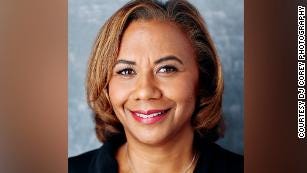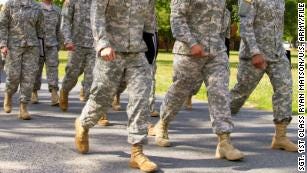It is incumbent upon this government to address the historic and more recent wrongs and to do whatever is needed to find and identify every child who died while in the custody of a government-sanctioned residential school - no matter what it takes.
If other jurisdictions can spend time and money identifying victims of violence, through DNA technology, then the Canadian government can spend the time and money to identify these youngest victims of neglect, abuse, cruelty, and racist policies.
As Canada Day approaches, I can say that I am proud to be a Canadian, proud of what Canada has accomplished in terms of attempting to build a more equitable country that recognizes rule of law and strives to be fair. But I would be so much prouder if Canada would live up to its lofty ideals, and truly address the inequities and systemic racism that too long have been hidden in plain view.
I would be prouder if Canada followed the lead of Ontario and Alberta, in setting aside funds to identify and return the bodies of the young victims. If it addressed the existing inequities in education funding to create a level playing field for First Nations and Aboriginal students. If it ensured that access to clean water, nutritious food, and health services were truly universal.
I am a proud Canadian, but I also bear a part of the shame and the sorrow associated with the Residential schools. We as Canadians need to know and understand this part of our history, face it, understand the long-lasting and multigenerational impact of tearing children from their families and subjecting them to abuse and do better.
Something to reflect upon, this Canada Day.
Celebrations of Canada’s national day muted amid furor over unmarked graves
TORONTO — Celebrations of Canada’s national day were more subdued than usual in parts of the country Thursday amid mounting fury and grief over the recent discoveries of more than 1,000 unmarked graves on or near the grounds of former residential schools for Indigenous children.
Several communities said that their festivities would be altered. Others said that they were scrapping or postponing them altogether. Prime Minister Justin Trudeau resisted calls to cancel virtual celebrations, but said that the Canadian flag on the Peace Tower in Ottawa would remain at half-mast.
In a statement Thursday, Trudeau acknowledged that “for some, Canada Day is not yet a day of celebration.”
“We, as Canadians, must be honest with ourselves about out history because in order to chart a new and better path forward, we have to recognize the terrible mistakes of the past,” he said. “The truth is we’ve got a long way to go to make things right with Indigenous peoples.”
The holiday comes as Canada grapples with one of the darkest chapters of its not-so-distant history: Wednesday saw the announcement of another discovery of unmarked graves at or near a former school for Indigenous children — at least the third such find since late May.
Remains of 215 Indigenous children discovered at former Canadian residential school site
The Lower Kootenay Band, part of the Ktunaxa First Nation, said ground-penetrating radar had revealed 182 human remains in unmarked graves — some as shallow as three feet — near the grounds of the former St. Eugene’s Mission School in British Columbia. The school was run by a Catholic group until it closed in the 1970s.
The discoveries have been vindication for Indigenous people, who have long told stories about the graves, and a visceral, jolting reminder of Canada’s mistreatment of them.
Indigenous leaders expect to find many more unmarked graves as communities across the country turn to ground-penetrating radar to unearth dark secrets buried for decades.
“This is the beginning of these discoveries,” tweeted Perry Bellegarde, the national chief of the Assembly of First Nations, on Wednesday.
Nearly 150,000 Indigenous children were sent to the government-funded and often church-run boarding schools, which were set up in the 19th century to assimilate them and operated until the late 1990s. Many students were forcibly separated from their families to be placed in the schools.
Canada’s Truth and Reconciliation Commission said in a 2015 report that many of the students were subjected to physical and sexual abuse at the schools, which barred them from practicing their traditions and speaking their languages. It said that schools carried out “cultural genocide” and effectively institutionalized child neglect.
The commission identified more than 3,000 students who died at the schools, a rate that was far higher than for non-Indigenous school-age children. That number has since grown. Children, who were often malnourished, died of diseases. Others died in fires, accidents or while trying to escape.
Pope Francis, who has expressed sorrow over the graves but stopped short of apologizing for the Catholic Church’s role, has agreed to meet with residential school survivors. The Canadian government and some Catholic groups, as well as the Presbyterian, Anglican and United churches of Canada, which also ran the schools, have apologized for their roles in the abuse.
Since the first graves were discovered, more than a half-dozen churches across the country, including a number on Indigenous land, have been vandalized or burned. Authorities have cast the fires as suspicious.
On Wednesday, police in Alberta and Nova Scotia said that they were investigating two suspicious fires at Roman Catholic churches, at least the fifth and sixth such fires in 10 days. Others churches have been defaced. In Saskatchewan, a Catholic church was splattered with red handprints and the words, “We were children.”
Trudeau on Wednesday denounced the spate of vandalism and the fires.
“This is not the way to go,” he said. “The destruction of places of worship is unacceptable and it must stop.”
“Hate-inspired violence, burning down faith communities, targeting them with these acts of violence and intimidation is not reconciliation,” Alberta Premier Jason Kenney told reporters as he toured the charred remains of a century-old church in the town of Morinville.
Bellegarde, the First Nations chief, urged restraint.
“I can understand the frustration and the anger and the hurt and the pain,” he said. “But to burn things down is not our way.”
Celebrations of Canada’s national day muted amid furor over unmarked graves
With the rediscovery of thousands of graves at residential schools across the country there have been multiple calls to either cancel or rename Canada Day.
Sadly, there is some merit to the idea as Canadians come to grips with our history as sometimes-brutal colonizers of lands that were once in the care of First Nations. There is also a growing recognition that we are the beneficiaries of a genocide that has been going on since Jacques Cartier sailed up the St. Lawrence River looking for a shortcut to Asia. A cloud is hanging over us.
The Canadian genocide has taken many forms over the centuries. There was the accidental (and sometimes deliberate) spread of sicknesses like smallpox that some historians believe wiped out up to 90 per cent of First Nations after first contact. Many of the unmarked graves at residential schools are there because of the unchecked spread of tuberculosis in crowded dormitories.
There has also been a kind of geographical genocide where First Nations were separated from each other and pushed into isolated reserves that have not offered much in the way of opportunities, services, or even necessities like clean drinking water.
These actions were then followed by a wider cultural genocide and the attempts of various nation builders to “westernize” First Nations. That approach gave rise to a residential school system where children were taken from their parents, sometimes neglected or abused by their caregivers, and forced to abandon their culture.
Driving all of this is a relentless economic genocide where resources that First Nations had claim to were taken and sold without much—if any—benefit going back to the people who never legally ceded their rights to the land.
There aren’t many countries on the planet that don’t have horrible histories involving war, genocide, slavery, religious persecution, or various forms of racial/cultural/sexual exploitation. But Canada is different in that we’ve never honestly acknowledged all the uncomfortable truths that made it all possible. The fact that so many people are only learning about residential schools today reveals a serious and obviously deliberate gap in our education system.
What Canada does to right these wrongs is what is ultimately going to define us as a nation in the future. Being great starts with being good.
Our shameful treatment of First Nations is just one example of Canada’s seldom-explored darker side. There’s the Komagata Maru; the heartless decision to send a ship with 900 Jewish refugees back to Europe and into the path of Nazis; internment camps; a ban on black immigrants in the early 1900s, and racial segregation that persisted as late as the early 1980s in some parts of Canada. This is a country where one in five children is living in poverty, despite being one of the wealthiest nations on the planet. We’re also increasingly known on the world stage for wolf culls, the seal hunt, and logging of old-growth forests.
None of this easily squares with the sunny image that we’ve constructed for ourselves over the years.
However, despite the sad facts of our origin story, I don’t think Canada Day should be cancelled or renamed. I would rather see it

